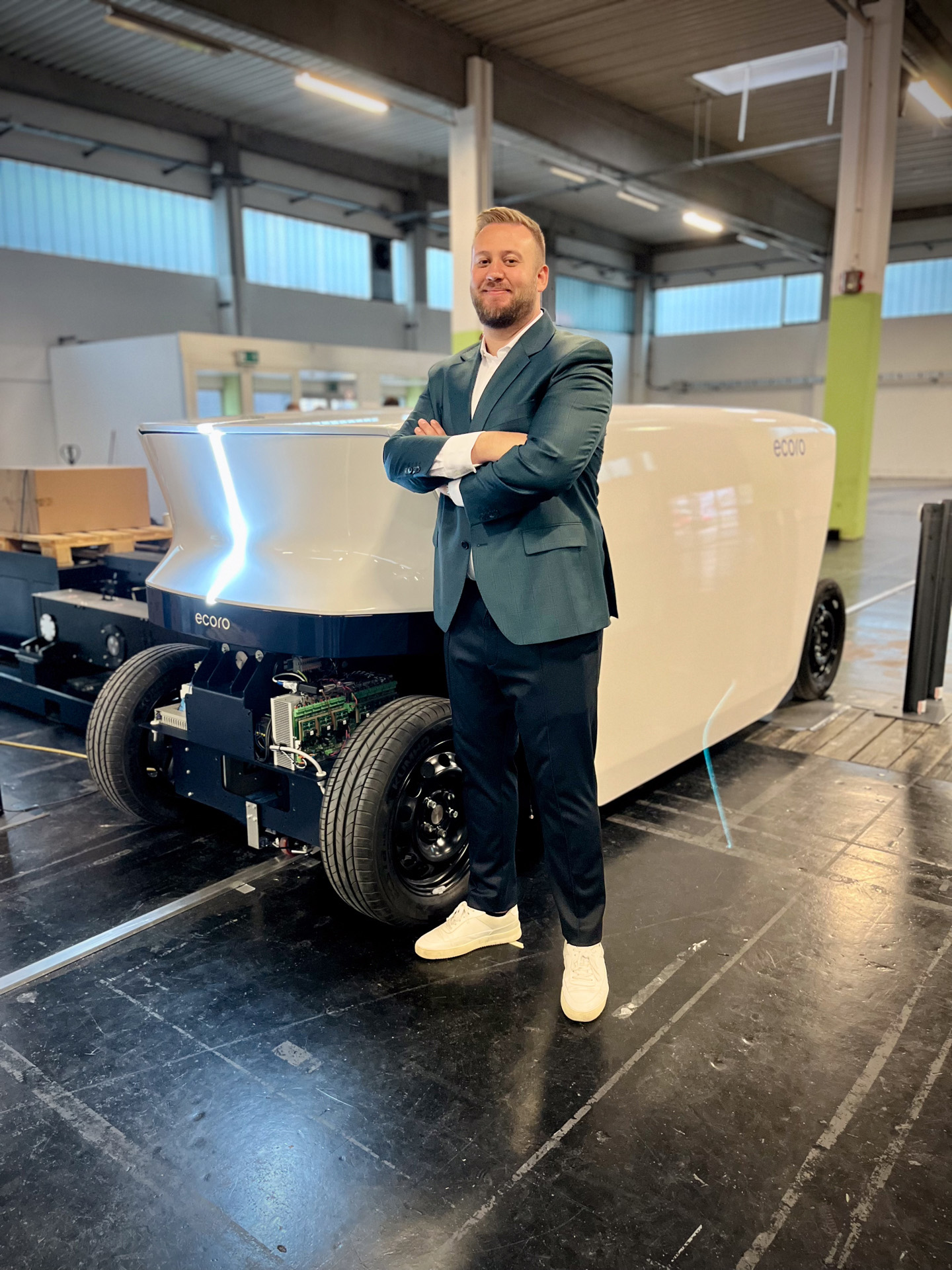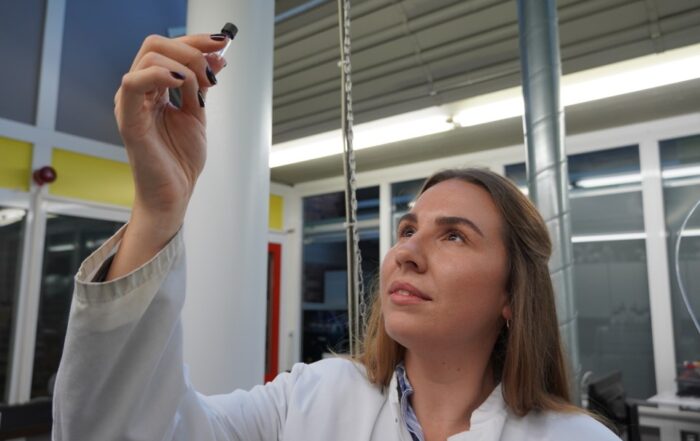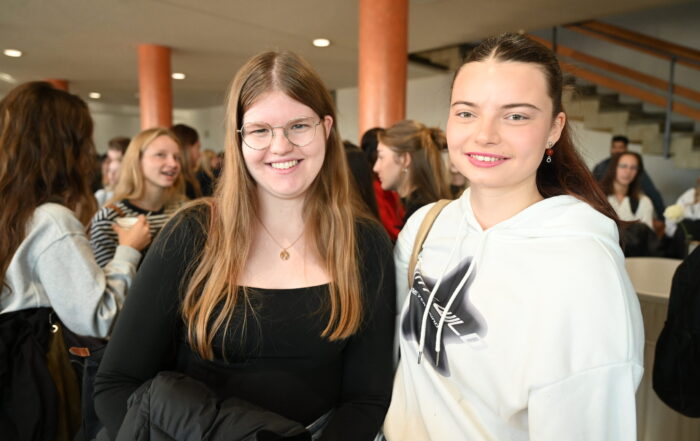8. August '24
by Andreas T. Wolf
What he is planning sounds like science fiction, but it could soon become reality: Entrepreneur Philipp Scheler is planning nothing less than to revolutionize global freight transport. In this interview, the current alumnus and co-founder of ecoro reveals how Coburg University of Applied Sciences has shaped him. He completed his degree in Automotive Technologies and Management at the Faculty of Mechanical and Automotive Engineering here eight years ago.
What does ecoro do and how do you want to change the world?
Philipp Scheler: Ecoro is developing a closed transport system that enables CO2-neutral and modular goods transportation. The core components are automated vehicles developed by us at the lowest possible prices. We also develop the vehicle communication and control software ourselves.
So you want to bring freight traffic underground?
Our business model is a four-stage plan that we apply individually to each project. First, we carry out feasibility studies with customers. Then we supply them with the necessary technology, which in the large-scale version can be a closed infrastructure with our transport system inside.
However, we can also automate individual point-to-point connections above ground on private property, for example on a company’s production site, using a significantly slimmed-down version. Customers could be airports, large department stores, governments or companies that want to automate their freight routes. We are also currently talking to a large bank. We are currently developing our technology further towards a B sample, which will then include the first series components.
You graduated with a Bachelor of Engineering in Automotive Technologies and Management in 2016. Today you are co-founder and CMO of a company. How did this come about?
I took my first major steps into independent projects while I was still a student. Some alumni may still remember the Departure student party at the freight station. With no permits, no budget and no functioning infrastructure, my colleague Lars Eggers and I were told to stop dreaming.
An event in this form was impossible. Three events with over 4000 visitors later, we know better. There is no such thing as impossible for me. I need big tasks (laughs).
Do you have fond memories of your time at university between 2012 and 2016?
At the beginning of my studies, I lost my grandparents and my father. That really shook me emotionally, but also shaped me for life. However, I then had a strong community at Coburg University of Applied Sciences. Whether studying or in my free time, I found many things easier with my fellow students. We looked out for each other.
What happened after your studies?
During my practical semester at MAN, I could have imagined starting my career at an equipment manufacturer. During my bachelor’s thesis, however, I was recommended by a good friend to join a young consulting agency. At that time, the team of 20 people was very dynamic and we were thrown straight into responsible topics. Process optimization and digitalization, solving problems and generating real added value – that convinced me. Today, the company has several hundred employees. The continuous development of my personality was basically what I really wanted.
How did you come to ecoro?
My colleague Daniel Daum had many years of experience in the construction industry and also worked on Elon Musk’s Hyperloop project. He came up with the idea and it is thanks to him that we are now working in a team of six on the development of the transportation network.
I was so enthusiastic about it that I joined ecoro as a co-founder.
Did your studies influence your decision?
The inspiration to work on this project actually came from my studies. We are now developing autonomous vehicles, for which I have a good basic understanding thanks to my studies. The technical knowledge also gave me a solid basis for succeeding in the working world.
I would describe myself more as a practitioner, but I was still able to learn a lot from the theory. For example, I remember a seminar at Bosch in Bamberg where we were allowed to optimize the production line of a cordless screwdriver. We were then able to apply our theoretical knowledge in practice. This mixture helped me the most in my professional life.
The questions were asked by Andreas Wolf from the IMPETUS team, a project funded by the Federal Ministry of Education and Research and the Joint Science Conference (GWK) as part of the federal-state initiative ‘FH-Personal’.






